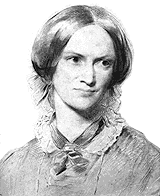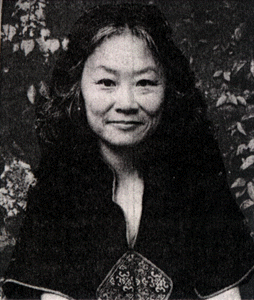English 205.69327: Women's Autobiography and
Bildungsroman
Professor Kathryn Conrad
Office hours: Wednesdays 1-3:30
Office: 3043 Wescoe, 4-2572
(Secondary office: 202 Nunemaker, 4-3314)
last updated 3-13-08
Description:
In this course, we will examine a popular and powerful literary genres
embraced and challenged by women writers over the years: the
autobiography and the bildungsroman, or novel of development. We will
read and discuss these works with attention to a number of
questions: what is the self? What conditions affect the
development of the self? What does gender have to do with selfhood and
authorship? What is the subject of autobiography? What
choices must be made when making a life into a narrative? What is the
relationship between authorship and authority? We will also explore
questions of voice, authority, genre, and purpose with attention to the
writing students will produce for the course; students are
encouraged to write one autobiographical essay. Students will help to choose at least one of the
texts we will read.
Texts (partial list):
Jane Eyre; Bronte, Charlotte; 0393975428 Norton PB 2001
Incidents in the Life of a Slave Girl; Jacobs, Harriet; 0156443503 Harvest PB 1983
Mrs Dalloway; Woolf, Virginia; 0156628708 Harvest/HB PB 1981
Their Eyes Were Watching God; Hurston, Zora Neale; 0061120065 Harper PB 2006
The Woman Warrior; Kingston, Maxine Hong; 0679721886 Vintage PB 1989
Fun Home; Bechdel, Alison; 0618871713 Mariner PB 2007 REQ N
Other information:
This course is cross-referenced with Women's
Studies.
Registration:
The Department of English reserves the right to terminate
administratively the enrollment of any student who misses two
consecutive class meetings during the first two weeks of the semester.
Should an emergency situation cause the student to miss two consecutive
class meetings, the student should contact the instructor(s) or the
English Department, 864-4520, immediately. Students are expected to
submit promptly requests to drop should they decide to disenroll from
English classes.
Requirements:
Attendance is required. More
than 5 unexcused absences, counting from the first day of your
enrollment in this course, will result in failure of this course. Work in other classes, away games (unless you are an athlete with
documentation and have approved your absences with me at the start of
the semester), hangovers, and vacations do not
count as excused absences. If you are in doubt, ask me.
The
rest of your participation grade includes in-class
participation, discussion questions,
and occasional small group work. Students are required to
have a
registered
e-mail account and to access the course website for updated
information,
assignments, and discussion blogs, available on the Blackboard site.
Students are expected to participate in discussion online at
least 4 times: at least twice before Spring Break, and at least twice
more before the last day of class. Class meetings that are
cancelled by the university (e.g., for weather) or by me will be made
up in online discussion and assignments and participation in such
discussion will count for attendance; such participation will not count
toward the 4 minimum postings. Students who must be absent, either
excused or unexcused, should make up for their participation by posting more online (absences themselves cannot be made up).
Students
will be expected to write two essays of 6 pp for this course, the second of
which can be an autobiographical essay. More information
about each writing assignment will be available online at the
Blackboard website.
There will a final exam for the course (identification and short essay).
I reserve the right to give reading quizzes (generally unannounced, and
worth 5 points each).
- Students
with Disabilities: The staff of Services for Students with
Disabilities (SSD), 135 Strong (Lawrence), 785-864-2620 (v/tty),
coordinates accommodations and services for KU courses. If you have a
disability for which
you may request accommodation in KU classes and have not contacted
them,
please do as soon as possible. Please also see me privately in regard
to
this course (Adapted from SSD statement).
- Writing
Center: Most
colleges and universities have a writing center, a place for students
to talk about their writing with trained peer consultants. At KU, we
call our writing centers Writer's Roosts. When you visit,
bring
your work in progress and an idea of what you would like to work
on-organization, support, documentation, editing, etc. The
Roosts
are open in several different locations across campus; please check
the website at http://www.writing.ku.edu/
for current locations and hours. The Roosts welcome both drop-ins and
appointments,
and there is no charge for their services. For more information, please
call 864-2399 or send an e-mail to writing@ku.edu
(Adapted from Writing Center Statement).
- External
links: The Blackboard
website contains a list of relevant external links.
- Weather
cancellations: Call 864-SNOW to discover whether
classes have been cancelled by the University due to inclement weather.
Plagiarism:
Plagiarism is stealing and passing off someone
else's ideas or words as one's own or using information from another's
work without crediting the source. Any detected cheating
offense--including but not limited to plagiarism;
the unauthorized use of crib sheets, texts, or other materials during
an
examination or quiz; the copying of another student's work (even with
the permission or aid of that student, who is thereby culpable); the
use of prewritten essays (the student's own or someone else's); the
uncredited adoption of another writer's interpretation of a work; or
the unauthorized use of work written for another assignment or
class--will be reported to the University. A record of each verified
offense will be kept throughout the student's association with the
University (Adapted from FSE statement).
Plagiarism is not a game, nor is it simply a "shortcut" when time
presses. It is a very serious form of academic misconduct and
will be treated as such in this class. When you consult outside sources
for ideas--through published or unpublished essays, interviews, the
Internet, conversation, etc.--you must cite those sources in your work.
I understand that academic work can be daunting, even for the best of students: if you are struggling
with an assignment, are unclear about my expectations, or are behind on
your work, please consult me. There is always a better path than
plagiarism; I can work with you to help you find your own voice while
incorporating others' ideas appropriately. If after reading the
statement above, you are still unclear about what constitutes
plagiarism, ask me BEFORE turning in an assignment.
A plagiarized assignment will result in failure of the assignment
(no credit given); it also impacts your larger course grade more than a
paper that merely receives an F, and will usually result in failure of
the course. The Department of English has a zero-tolerance policy on
plagiarism. Formal records are currently kept by the Department of
English and the College of Liberal Arts and Sciences. I may also send a
copy of the plagiarism form to the home department of any student who
is found to have plagiarized.
Th Jan 17: Introduction
T Jan 22: Bronte
Th Jan 24: Bronte
T Jan 29: Bronte
Th Jan 31: Bronte
T Feb 5: Bronte, finish.
Th Feb 7: Jacobs through ch. X; vote on texts.
T Feb 12: Jacobs through ch. XXVI.
Th Feb 14: Jacobs. finish.
T Feb 19: Woolf through 69. PAPER #1: complete draft due.
Th Feb 21: Woolf through 102.
T Feb 26: Woolf through 165.
Th Feb 28: Woolf, finish.
T Mar 4: Hurston
Th Mar 6: Hurston
T Mar 11: Hurston.
Th Mar 13: Hurston.
SPRING BREAK
T Mar 25: Kingston, 1st chapter
Th Mar 27: Kingston.
T Apr 1: Kingston
Th Apr 3: Kingston PAPER #1 due: final revision.
T Apr 8: Tan
Th Apr 10: Tan
T Apr 15: Tan
Th Apr 17: no class; start Winterston
T Apr 22: Winterston Paper # 2: draft due (optional).
Th Apr 24: no class
T Apr 29: Winterston
Movie screening
Th May 1: Movie discussion
T Apr 6: Bechdel
Th Apr 8: Bechdel. Last day of class. Evaluations. Paper #2 due: final revision.
Back
to Kathryn Conrad's
home page.


